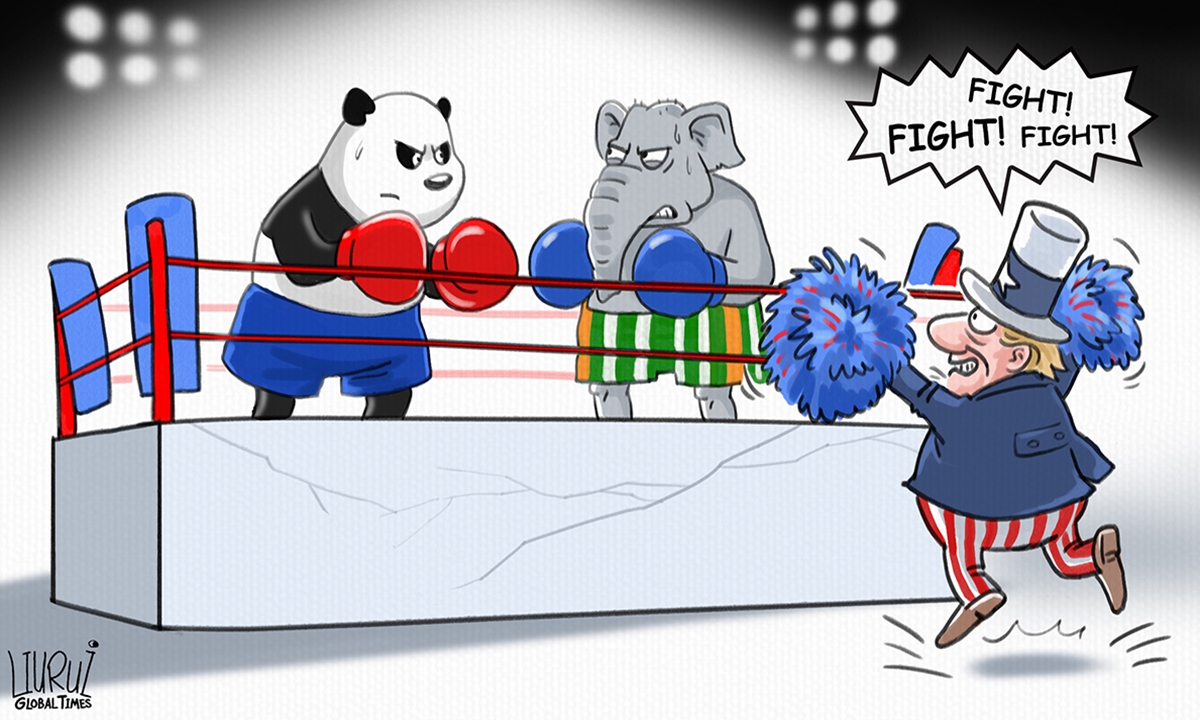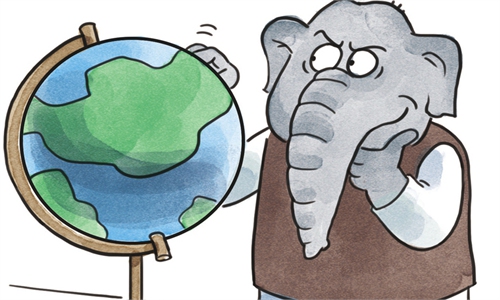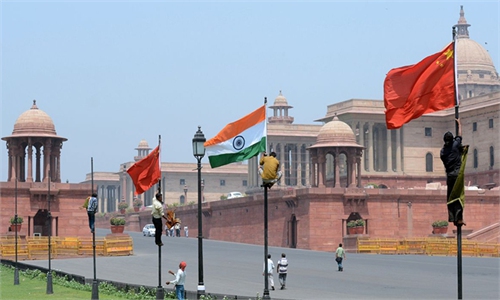US’ plan to rope in India to serve Washington's purpose wishful thinking: observer

With an undisguised glee, Uncle Sam is nudging India into further spats with China. Illustration: GT
The US' intention to rope in India to counter China and Russia, and even further intensify the regional tensions toward militarization and conflict, is only Washington's own wishful thinking, analysts said on Sunday.
The US expects a "transformational moment" in India ties during Prime Minister Narendra Modi's upcoming trip to Washington, President Joe Biden's national security adviser Jake Sullivan said as he downplayed chances for a diplomatic breakthrough in China when US Secretary of State Antony Blinken visits, Reuters reported on Friday.
"Secretary Blinken's trip to China will be a significant event, but it's likely not even the most significant event of next week when it comes to US foreign policy," Sullivan said at a briefing in Tokyo on Friday.
Biden has made deepening ties with India a cornerstone of his efforts to contain China's expanding influence, with his administration also hoping to persuade India, which maintains some security and economic ties with Russia, to buy US military drones, Reuters said on Friday.
The close engagement between India and the US is a continuation of both countries' foreign policies, and India has indeed maintained close cooperation with the US in recent years, particularly in the areas of economy, technology and defense, Qian Feng, director of the research department at the National Strategy Institute at Tsinghua University, told the Global Times.
It is foreseeable that both sides will reach new agreements during the leaders' meeting, particularly in economic and defense cooperation, to further deepen their strategic partnership, the expert noted.
India has traditionally followed a diplomatic approach of maintaining a balanced relationship with major powers, particularly regarding its relations with the US and Russia, Qian said, adding that its relationship with Russia has faced challenges, especially with the escalating conflict between Russia and Ukraine, leaving India confronted with numerous irreconcilable issues and challenges in managing its relationships with the US and Russia.
India has never directly criticized Russia since the start of the Ukraine crisis publicly, but it has consistently called for the "cessation of hostilities" by both sides and the need for a peaceful solution. India has also become one of the top buyers of Russian crude in the last one year, according to Indian media reports.
This has led to many contradictory approaches of India. On the one hand, India has strengthened cooperation with the US and the West, especially in defense and security, but on the other hand, it has explicitly refused to join the US-led NATO, Qian remarked.
Analysts noted that these seemingly contradictory actions are taken with the purpose of safeguarding India's existing strategic framework and maximizing its position among major powers in order to pursue its national interests to the fullest extent.
Separately, Blinken began meetings in Beijing on Sunday, just days ahead of Modi's arrival in Washington on June 22, wishing to manage the escalation to ensure that the world's two biggest military powers do not "veer into conflict," Sullivan was quoted as saying in a separate Reuters report on Friday.
The discrepancy between the US' stated position and its actual actions can be attributed to the fact that one of the key focuses of US-India cooperation is to contain and exert pressure on China, experts noted.
However, whether such US' scheme will be successful or not does not solely depend on itself. India, as a regional power that upholds strategic autonomy, is unwilling to be a pawn of any major power and does not want its national interests to be held hostage as a result, the experts added.


